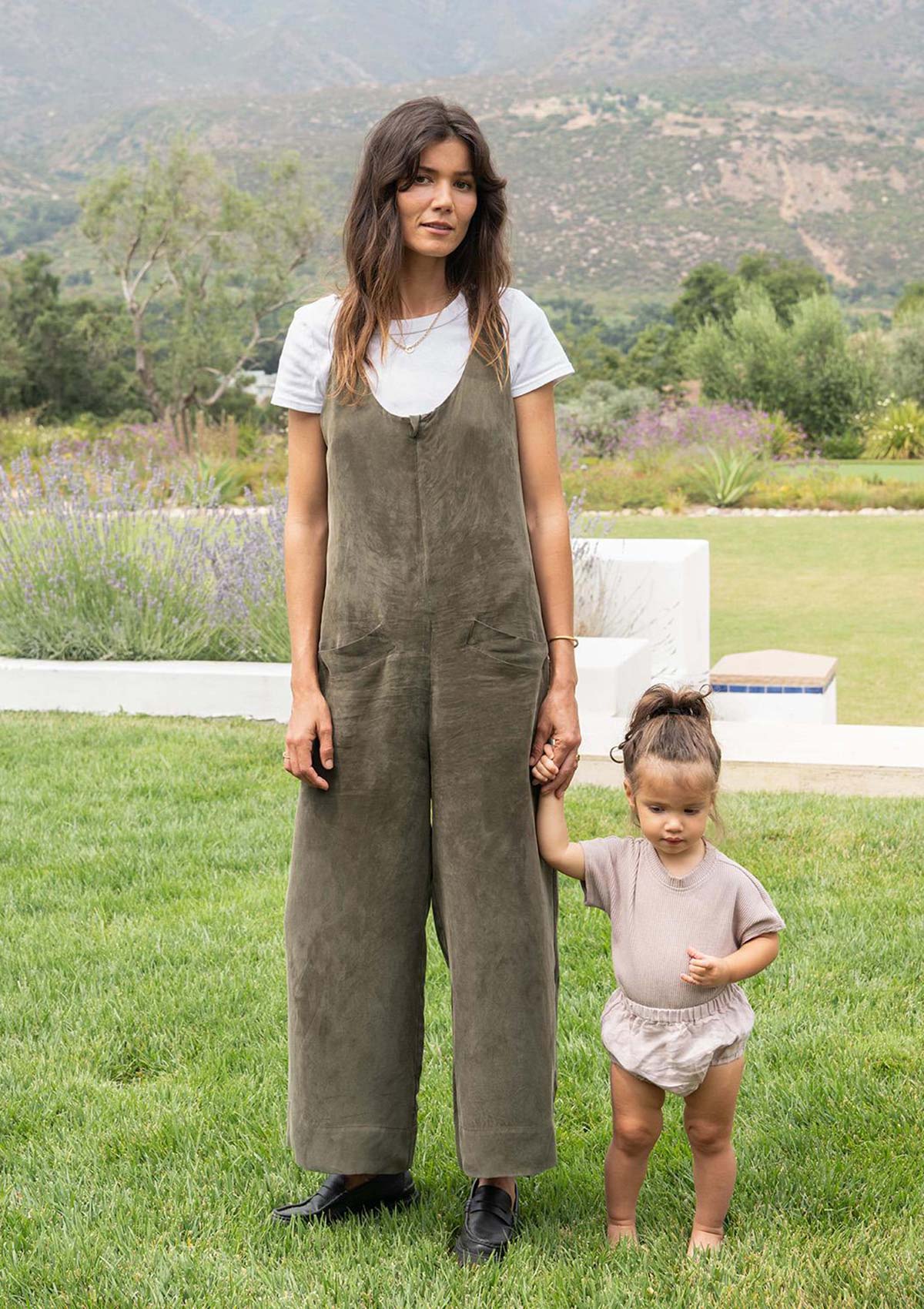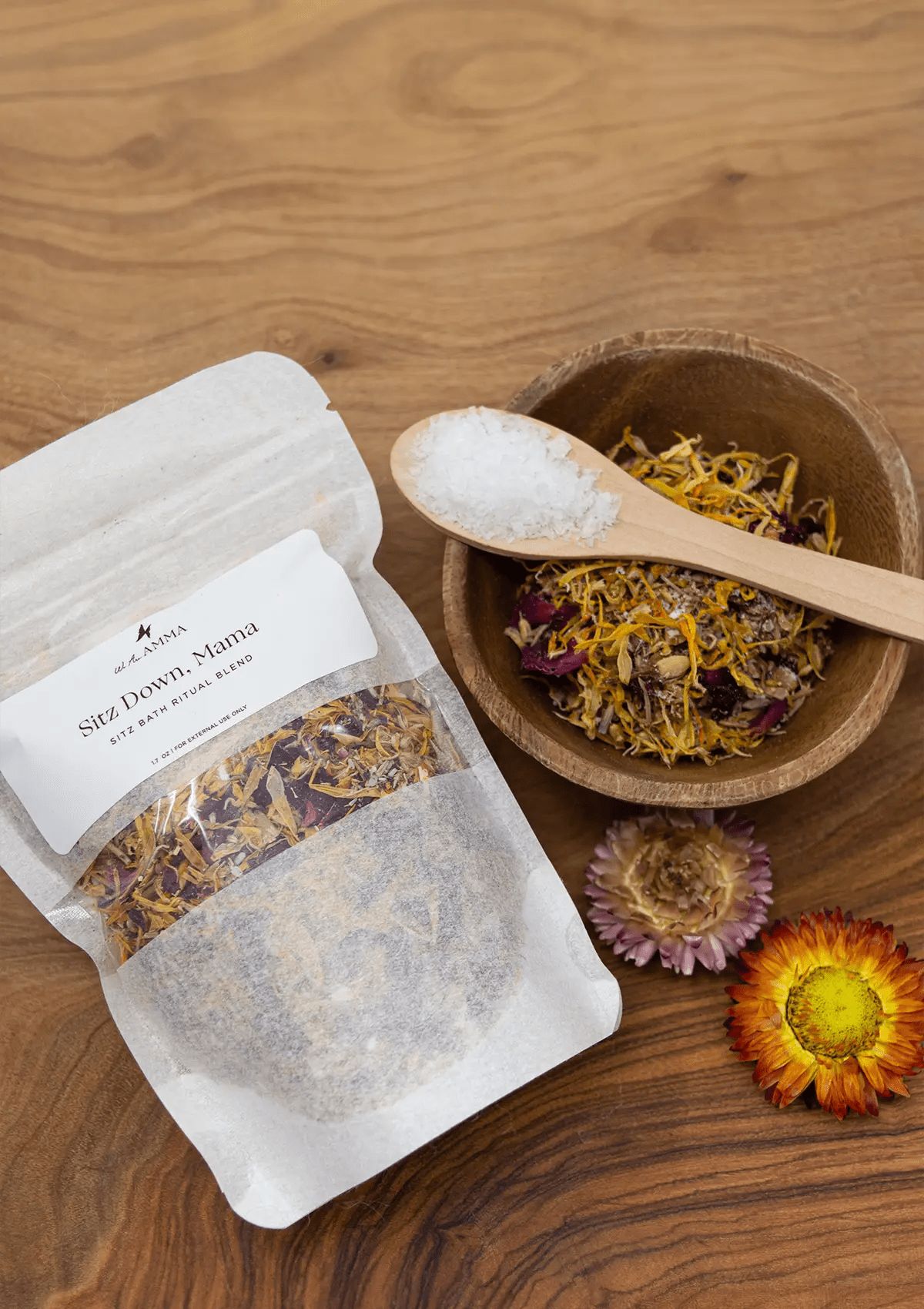
Let’s get physical (and emotional, and practical): How to Boost Your Relationship After Baby
Hey, beautiful mamas...we’re getting up close and personal with what postpartum looks like for you and your partner. The AMMA team and doula Ivy Joeva have rounded up some ideas for ways to nurture your connection with your significant other on every level while you both are navigating the uncharted waters of new parenthood.
Note: some of the verbiage we use is cisgender and heterosexual in nature, but please know that the below advice applies to all dynamics of couples and families 💖
The Emotional
Prioritize time together
You will both be so busy that this may feel impossible, but it’s crucial to make time for each other and keep channels of communication open.
- To minimize distractions, leave the house (just the two of you...time to call grandma or a bestie to babysit for an hour or two!) for a little couple-focused time
- Check in with each other: make sure you both feel satisfied with the division of labor and that your respective mental health is in a good place
- Keep. Talking. Through. Challenges.
Prioritize time apart
It may seem counterintuitive, but make sure you also schedule alone time. You will both need time to recharge and have moments of solitude in between the care of a newborn; it makes you better able to attend to each other’s needs and desires when you attend to your own first.
Express your needs
Even if you feel like your partner “should just know,” being clear about what you need emotionally is the best and easiest way to actually GET it.
Find the funny
Maybe easier said than done, but having fun together and finding humor in the hard stuff can lift so much of the heaviness from the day-to-day of parenting. Take it from someone whose infant daughter literally pooped INTO her own mouth...if you can’t laugh, this whole journey will be much harder than it needs to be.
Seek counseling
Life with a baby is a LOT to hold and professional help can be great support in laying it all out and finding the golden nuggets amidst the trials.
Mama Pro-Tip → Therapy can be a wonderful tool throughout your entire relationship (not just during the 4th trimester), and can help you navigate all your upcoming new situations with clarity and cooperation.
Rethink the small moments
From one AMMA mama: “When I was postpartum with our first, my husband would pack a small cooler with healthy snacks, coconut water, and a little encouragement/love note every morning before he left for work. I kept it by the sofa where I could nourish myself physically and emotionally while I rested and breastfed our baby...it was a simple thing but it was a way for him to help me out and for us to stay connected while he was gone.”
Life with a baby is often too full for grand gestures; the good news is that love is in the details...recognize the small moments for what they are. Hold hands, share a 10-second kiss in the morning before getting up for the day, text each other a simple “I love you” or “Thank you for being on this journey with me” or “Look what we made” with a pic of your newborn.
Compliment each other
You’ll most likely want to point fingers and complain at times...make sure you share that stuff in a heart-to-heart sit-down instead, where you can discuss how you both feel and recognize that you’re on the same team. Try to also make a habit of complimenting each other, noticing the little things your partner DOES do, and how much you appreciate them.
Prioritize sleep
Get sleep as often as possible and tell your spouse to do the same. Chores can wait, that new season of your fave Netflix show can wait, scrolling through your IG feed can wait. Being exhausted can put an immense strain on your relationship and contributes to so many other postpartum challenges. SLEEP.
Mama Pro-Tip → Chores nagging at you? Maybe now is a great time to hire a part-time cleaning service or a postpartum doula to help with baby laundry, meal prep, light tidying, etc. Tight on moolah? ask a friend to help out.
The Physical
“It's also important to expand the definition of sexual intimacy to include healthy sensual touch like massage, kissing, cuddling, and taking the time to give long hugs and remember to physically hold each other even during the weeks and/ or months that intercourse isn't possible. Because of a hormone called prolactin which is elevated in breastfeeding moms, libido can diminish after the birth of a child. Mom is also undergoing a transformation of identity in her new role as mother, and it's important that dads be prepared to court and "woo" their "new" partner, to help discover a new way of connecting intimately rather than being frustrated that sex may not be what it used to be. In many cases, this shared opportunity for discovery and connection can ultimately improve the sexual relationship!” -Ivy Joeva, doula
Don’t feel like you have to rush
The magic “6-week” mark, when most women get the all-clear for sexual intercourse by their doctor or midwife, isn’t a one-size-fits-all scenario…raging hormones, a pelvic floor still reeling from pregnancy and birth, and new feelings about your body in general can all make you feel less than ready and excited about sex. Make sure your partner is aware of all your feelings and mitigate expectations if necessary.
Mama Pro-Tip → See if you can visit a physical therapist who specializes in pelvic floor recovery post-birth!
Know what to expect when you ARE ready for sex
Don’t rely on spontaneity. Doesn’t sound sexy to schedule sex? Fair enough, and it probably isn’t...at least not in the way you might be used to. But physical intimacy is a significant part of feeling connected to your partner, when you both feel ready to venture there again. After you put baby to bed or down for a nap is a great opportunity, though if you are co-sleeping or bed-sharing you might need to get creative with location ;)
You may also find you struggle with vaginal dryness; this is due to hormones and is 100% normal. Lubricant can be your new best friend in those first few weeks of intimacy...find a water-based unscented variety. And remember that penetrative sex is not the only way to achieve physical closeness with your partner, so if that feels too intimidating then explore other options!
The Practical
“Baby proof” your primary relationship
Discussing your changing roles and responsibilities and making a plan for how you will balance parenting tasks with your relationship is a HUGE factor in preventing postpartum depression (for moms and dads)!
Put together a postpartum plan
Ideally before baby arrives, identify a few things you might need or want during the postpartum period and put together a plan with your partner. This can be anything, such as:
- stocking up on diapers or nipple cream
- arranging a meal train
- figuring out what a visitor schedule might look like
It’s important to be on the same page plan-wise, so you can both feel prepared and you can minimize any unwelcome surprises (like Great-Aunt Whoever stopping by unannounced while you’re on your 5th hour of cluster feeding)!
Establish your baby’s routines
The sooner you can get some routines in place for baby (and for you as well), the better! All of the above advice will be infinitely easier to implement if you both have strong routines to fall back on. You will be better able to make space and time for your relationship and you’ll feel calmer in the instances where the unexpected DOES pop up.
Mama Pro-Tip → Important to note: schedule is not the same as routine...it’s generally not recommended to try to schedule a newborn (see this article for more info on that).

































